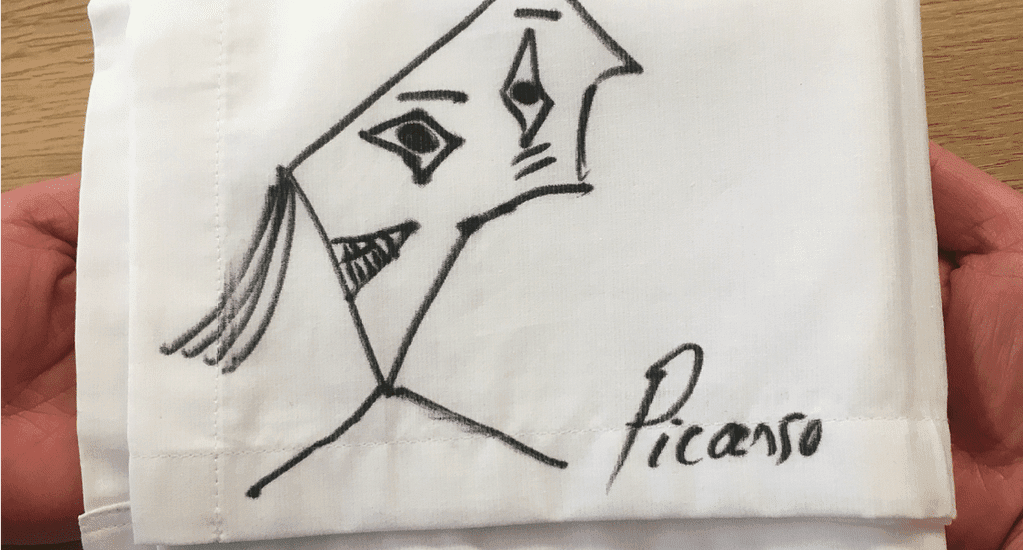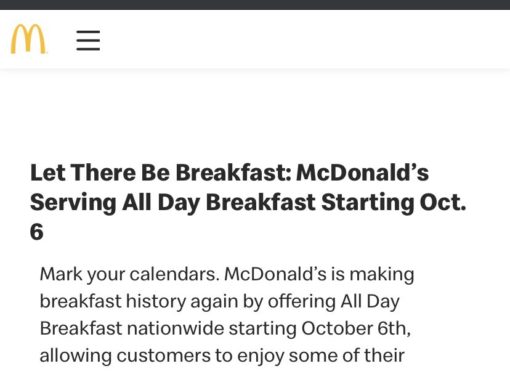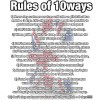The Pablo Picasso napkin story is one that should be remembered by all small business owners or those in business (and frankly anyone who buys products or services).
The anecdote goes something like:
Picasso is sitting in a Paris café when a fan approaches the artist and asks that he make a quick sketch on a paper napkin.
Picasso acquiesces [reluctantly accepts], draws his dove and promptly hands it back to his admirer along with an ask for a rather large sum of money 40,000 francs [the equivalent of £2M in today’s money1].
The fan is flummoxed. “How can you ask for so much. It took you a minute to draw this.”
To which Picasso simply replies, “No, it took me 40 years.”
The above is a nice anecdote but how does that help me going forward in life?
This isn’t about how to price your work or art, but rather the importance of not selling yourself short simply because you’ve got the expertise to do a task in a short period of time.
Whilst the value of art has less to do with its physical characteristics and more about what someone is willing to pay for it the statement within the story of it taking Picasso those 40 years prior is the important part, people are often quick to push for overnight success or a quick fix but this is almost impossible to get right, for the vast majority of us it takes centuries of hard work to master our trade.
When you price yourself too low, you’re essentially telling the world that your work isn’t worth much. It might seem counterintuitive to demand more for your work, but it’s also important to know that you are worth every penny of that amount.
You should be aiming for continued small victories that continue to build your knowledge and ability in your chosen niche/sector but ensure your clients are well aware (whether in your copy or your language used) that they’re paying for not only the service/product etc but the experience that you’ve brought them.
If you’re serious about starting a successful business, you must be fair in what you ask for, but at the same time, you should expect your consumers to be fair with you and let you make a reasonable profit margin.
Equally, it’s important to remember that expertise or years of experience doesn’t always mean the work is the best available and nobody should rest on their laurels, as if you’re an expert today, tomorrow there might be a totally new way of doing your work and you need to continually improve.
Tips for success:
- Ensure your customers are aware of your expertise
- Don’t price too low
- If you get questioned about your prices have a strong detailed explanation to explain the reasoning
- Remember we’re all students until we die, nobody is an expert forever
- Plan for failure to still be a positive learning experience



















![Tipping a waitress $200 [Video]](https://10ways.com/wp-content/uploads/2015/04/cash-100x100.jpg)






![Google are paying up to £30 for your [Scottish / English or Welsh] voice](https://10ways.com/wp-content/uploads/2016/08/4aug3-100x100.jpg)


